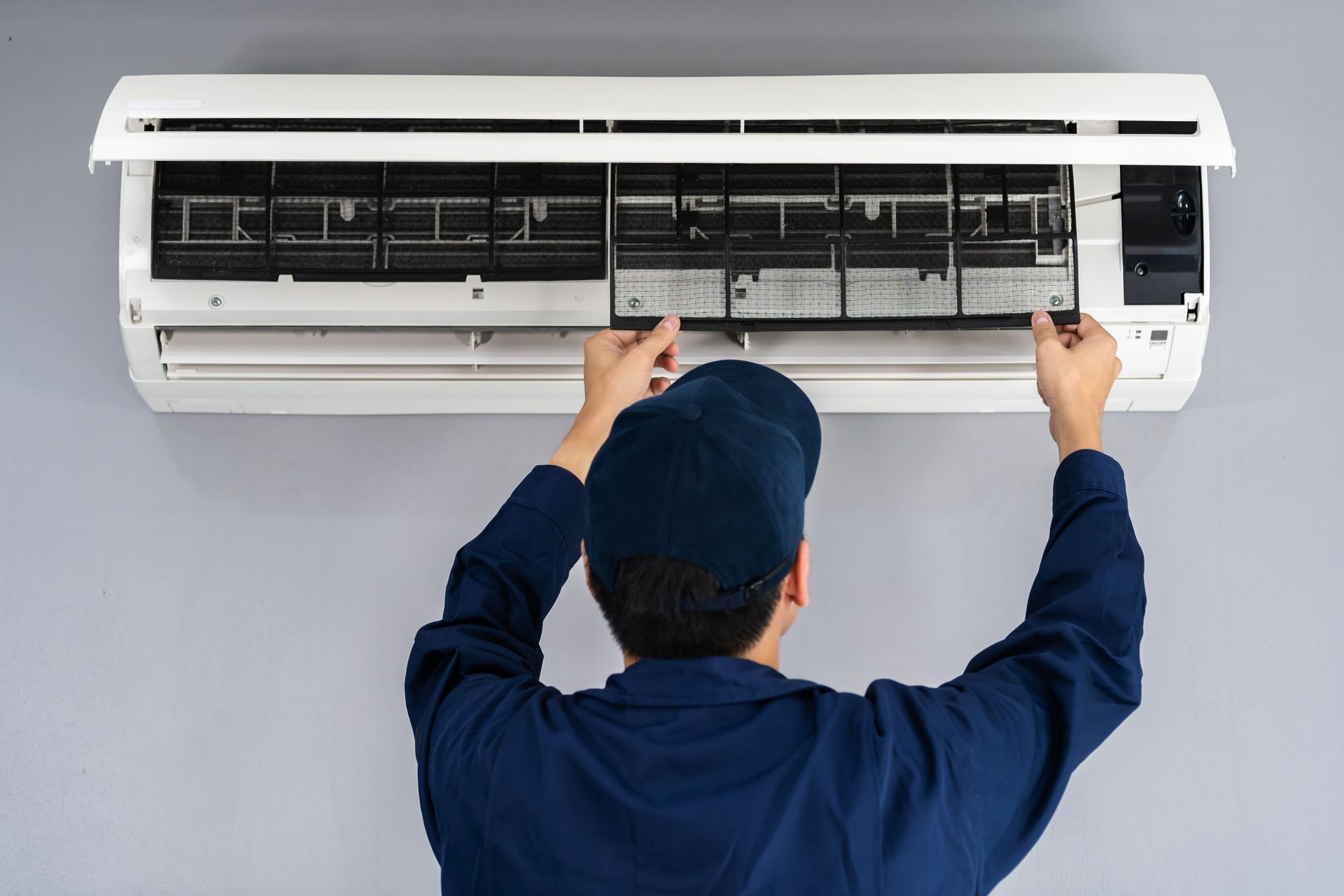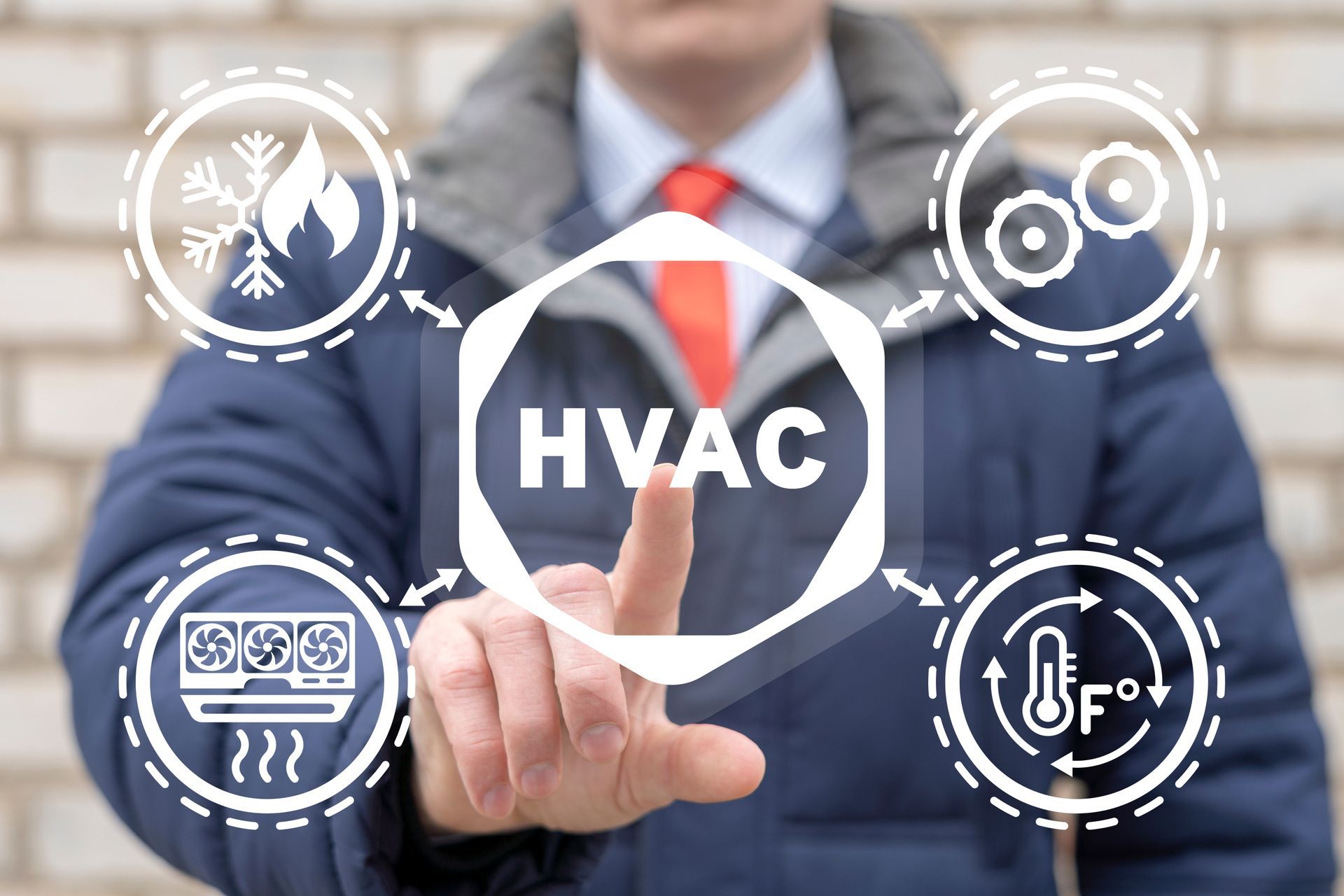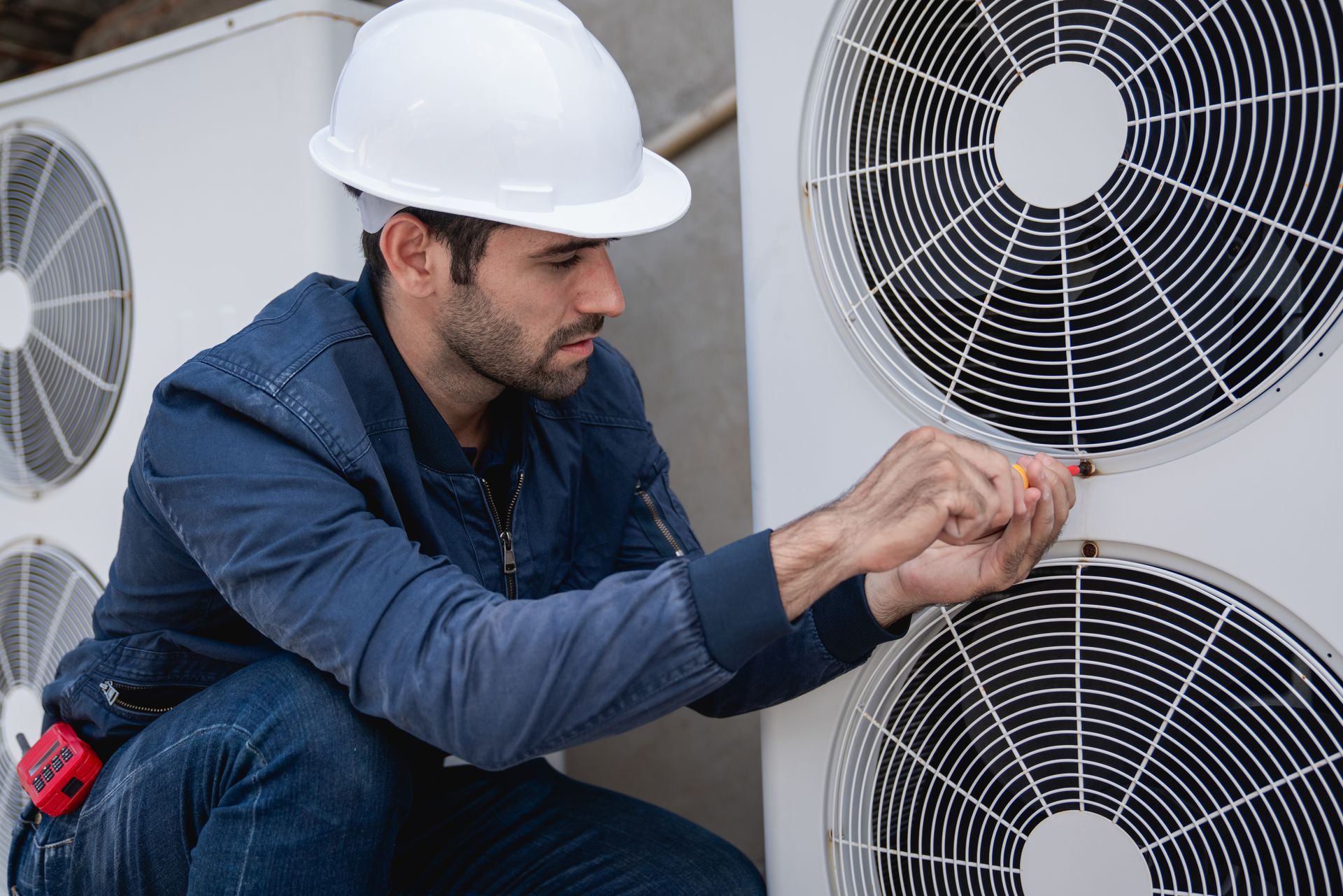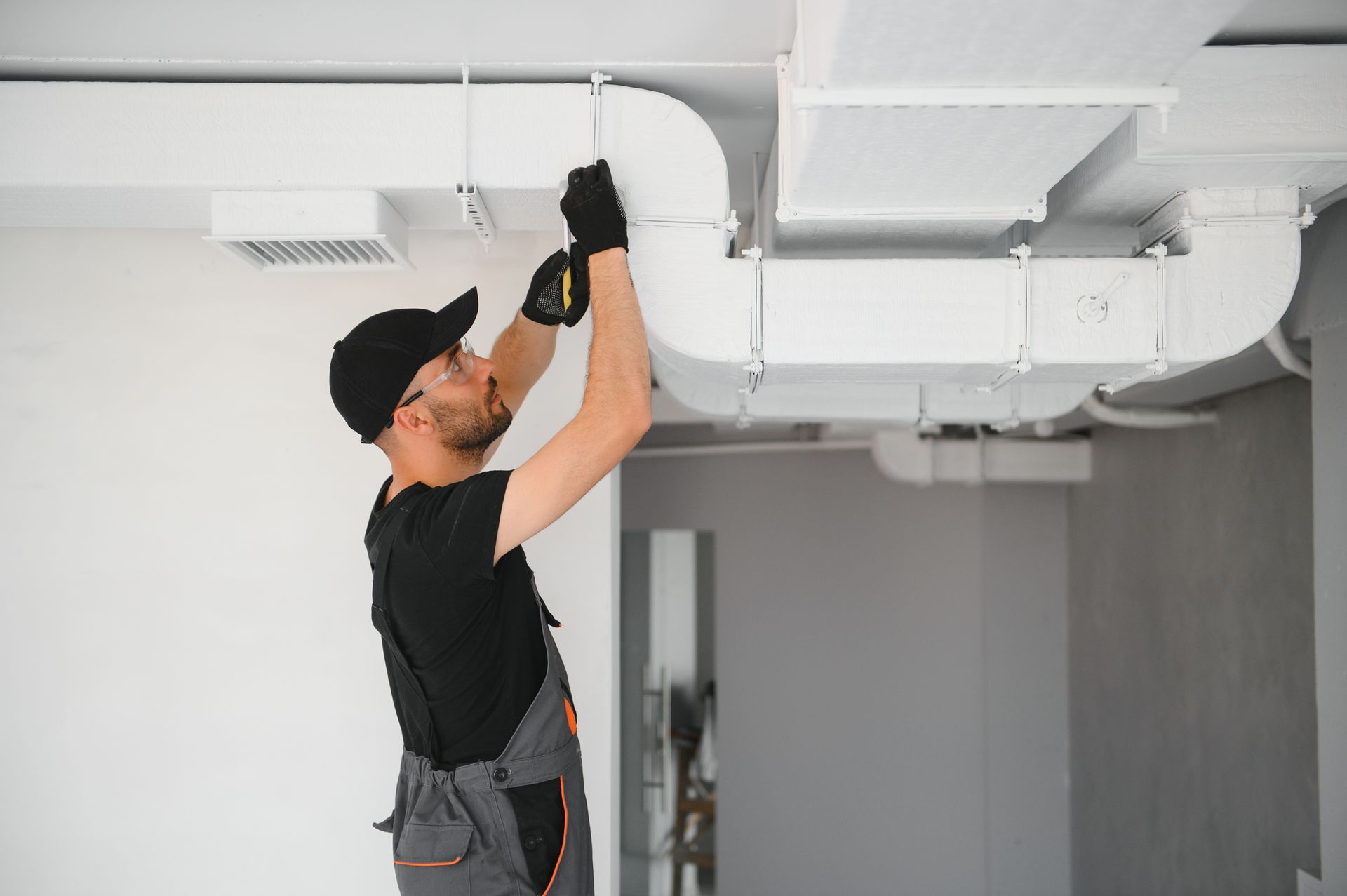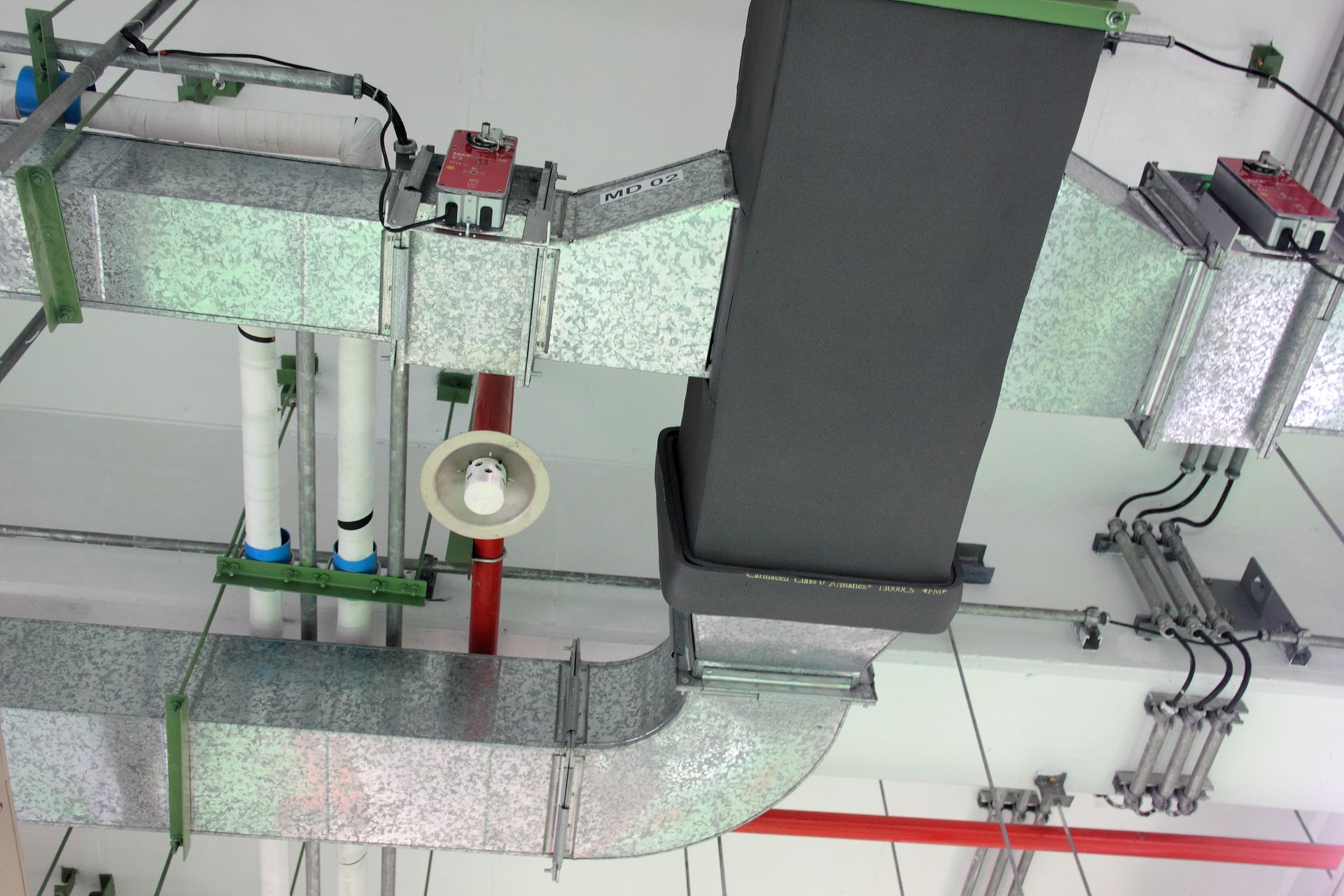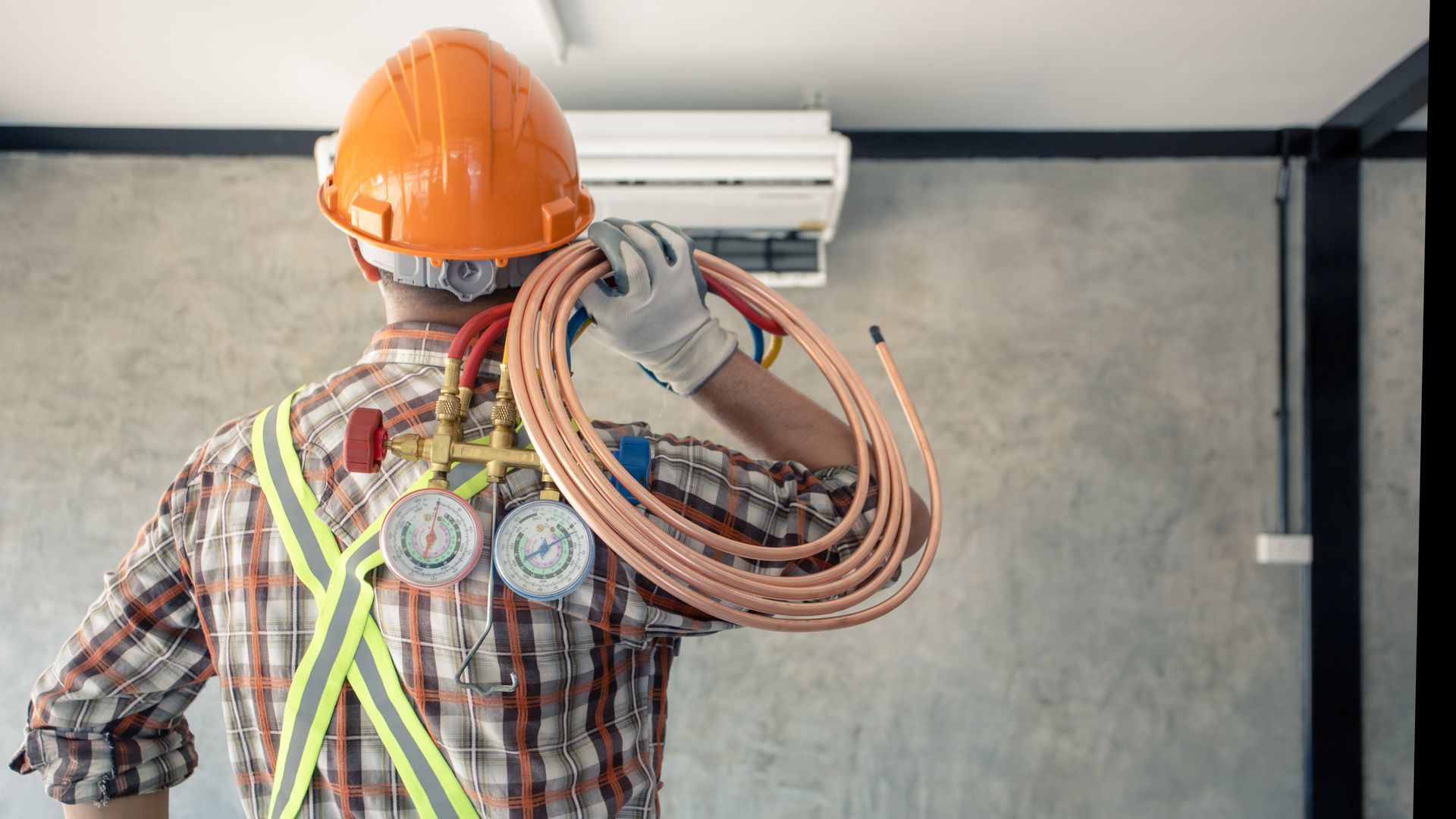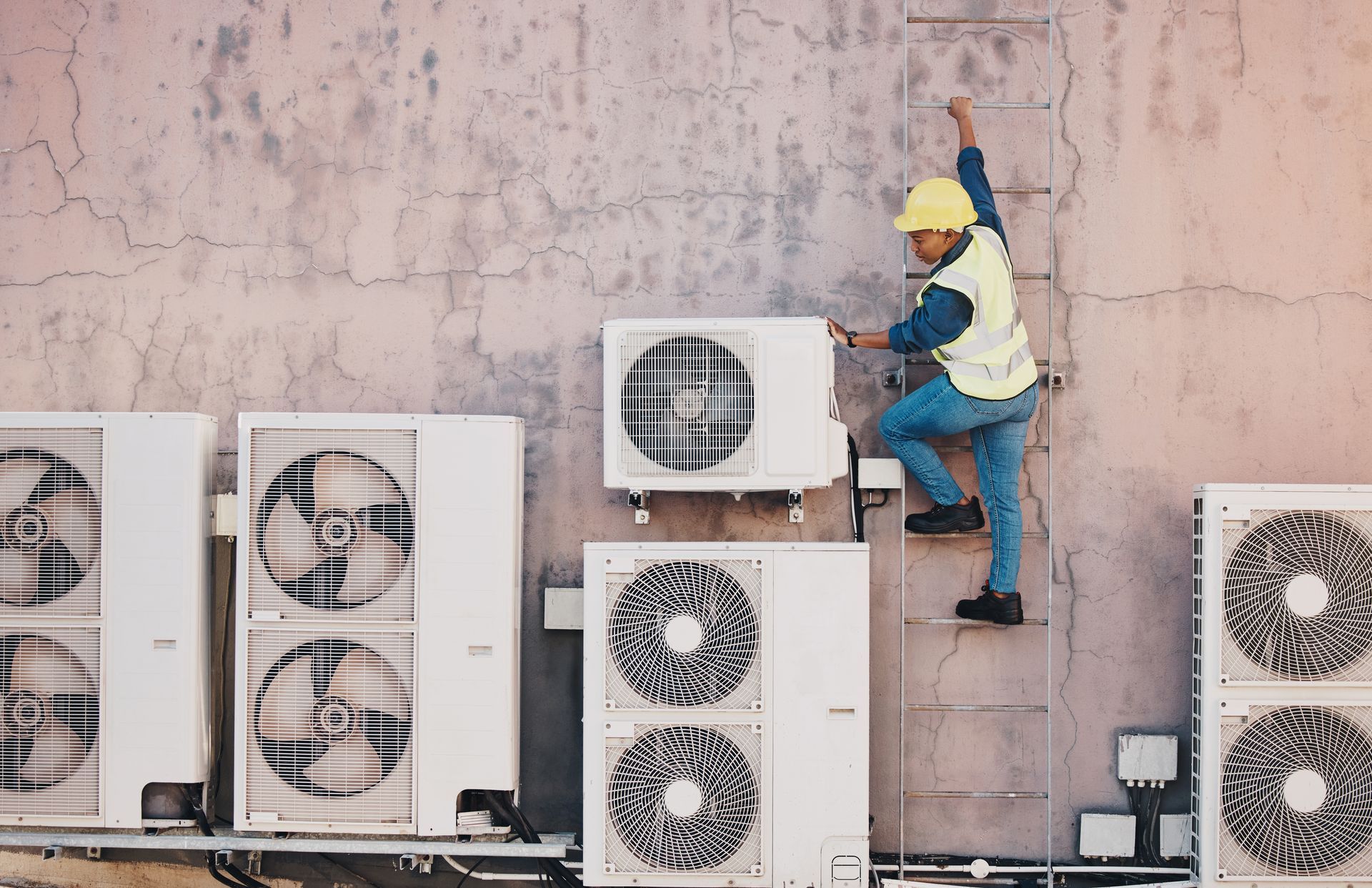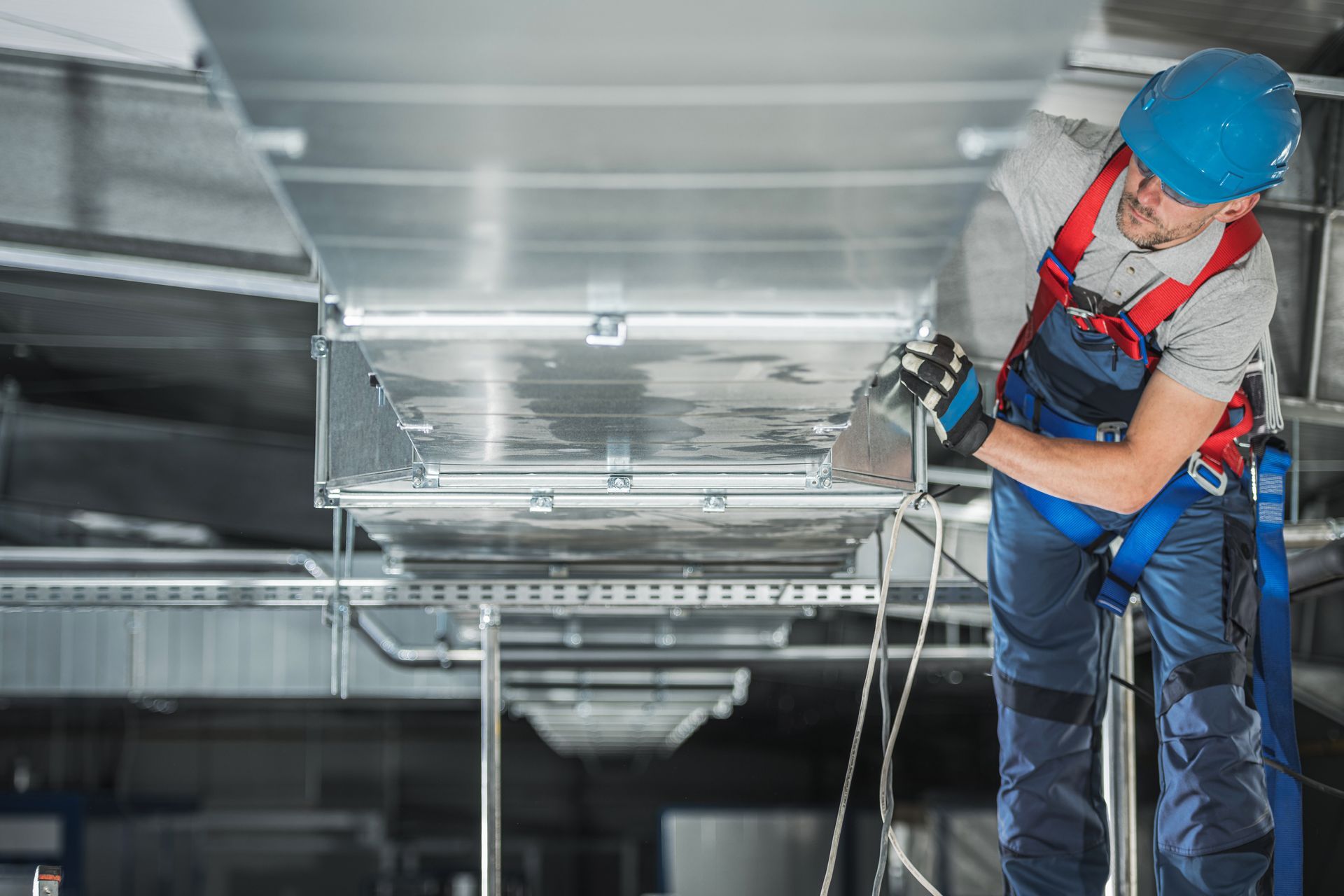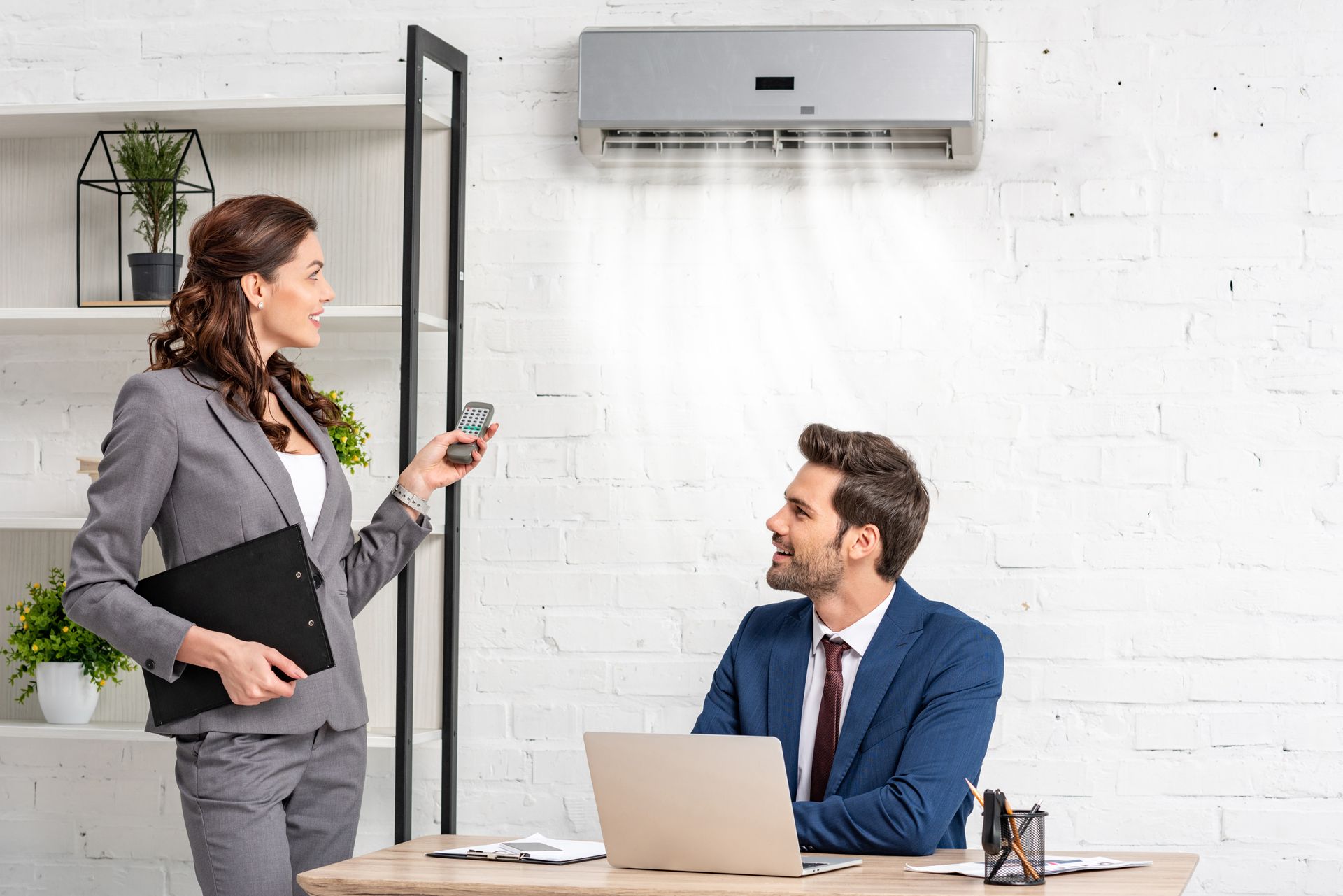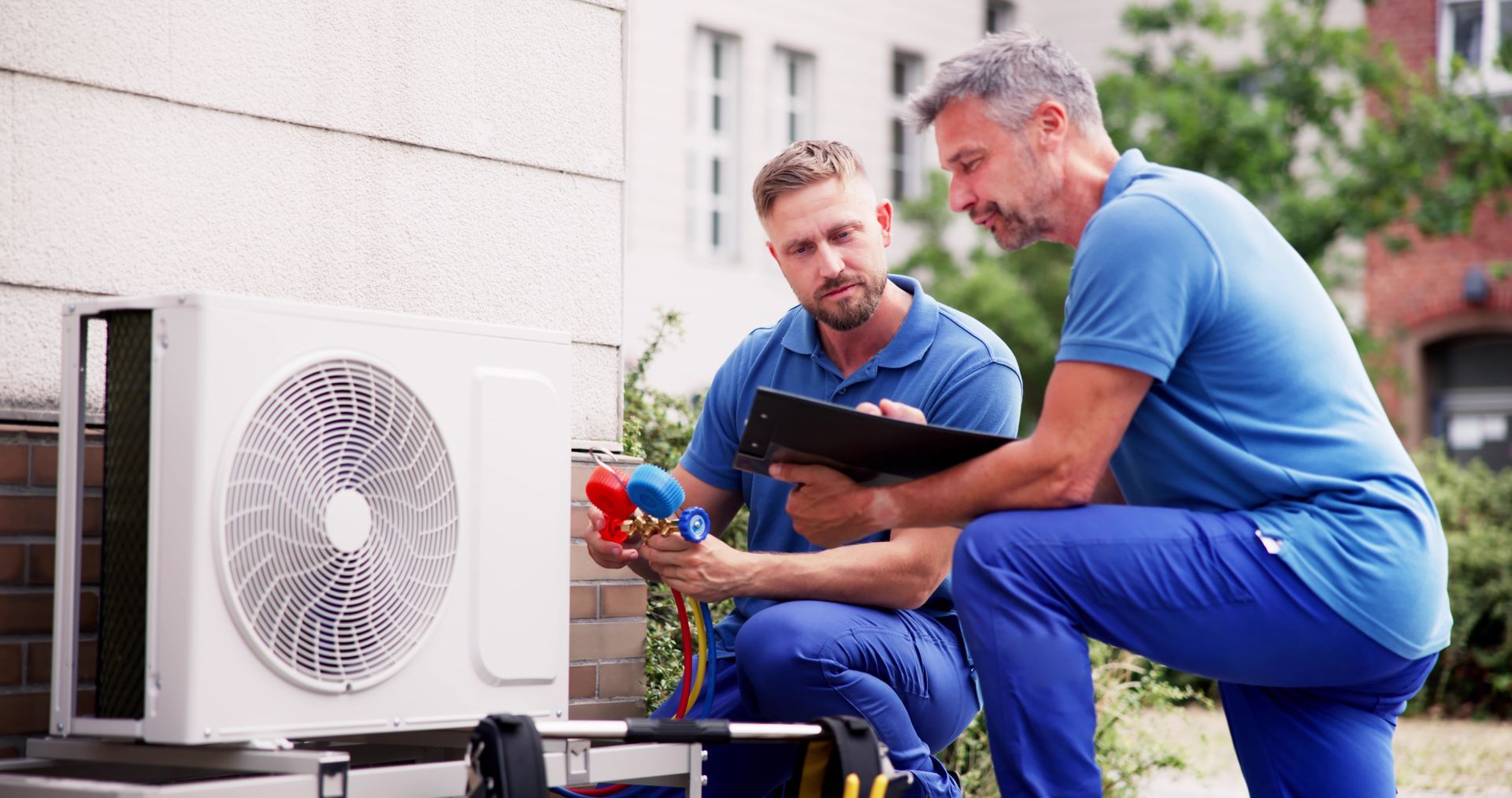Top 7 HVAC Issues Impacting Commercial Spaces
A well-functioning HVAC system is crucial for maintaining a comfortable and productive environment in commercial spaces. From offices and retail stores to industrial facilities throughout Western MA, the HVAC system plays a vital role in regulating temperature, ensuring air quality, and optimizing energy efficiency. However, like any complex system, HVAC units can encounter a variety of issues that disrupt their performance and impact business operations. Identifying and addressing these common problems promptly can prevent costly repairs, enhance comfort for employees and customers, and extend the lifespan of the HVAC system.
Common HVAC Commercial HVAC Issues
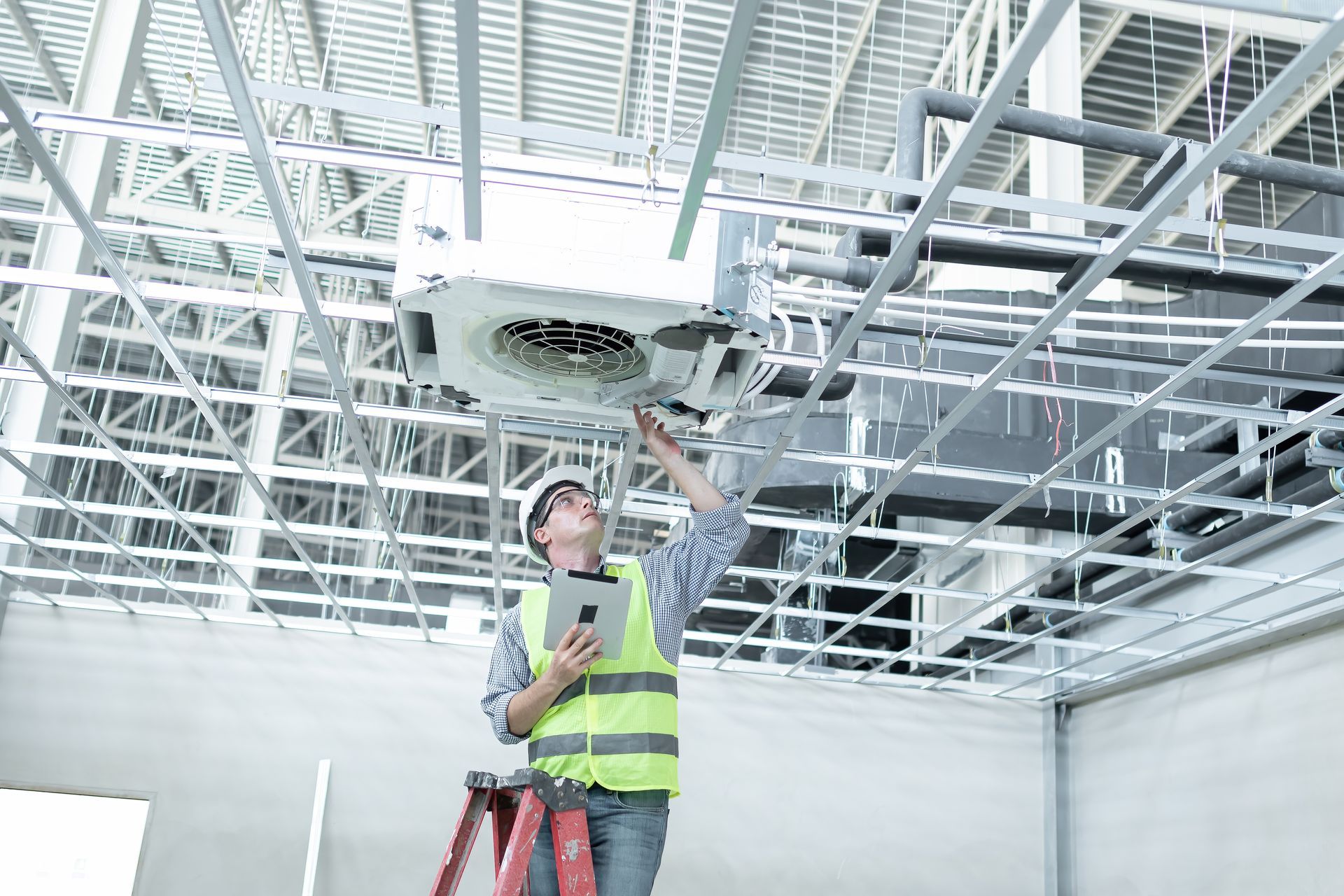
Issue 1: Inadequate Airflow
Inadequate airflow is one of the most common issues encountered in commercial HVAC systems. This problem can arise from various causes, such as clogged air filters, blocked ducts, or malfunctioning fans. When airflow is restricted, the HVAC system struggles to distribute conditioned air evenly throughout the space, leading to hot and cold spots that can make the environment uncomfortable for employees and customers alike. Inadequate airflow can also cause the system to overheat and work harder than necessary, resulting in increased energy consumption and higher utility bills. Regular maintenance, such as replacing air filters and inspecting ductwork for obstructions, is essential to ensure optimal airflow and maintain the efficiency of the HVAC system.
Issue 2: Thermostat Problems
Thermostat problems are another significant issue that can impact the performance of commercial HVAC systems. A malfunctioning thermostat can lead to improper temperature regulation, causing the system to run too frequently or not enough. This can create an uncomfortable environment, with areas being too warm or too cool. Common thermostat issues include incorrect calibration, dead batteries, or faulty wiring connections. Additionally, outdated or poorly placed thermostats might fail to sense the accurate temperature, further exacerbating the problem. Regularly checking the thermostat for signs of malfunction, ensuring it is properly calibrated, and considering an upgrade to a more modern, programmable thermostat can help address these issues. Proper thermostat management not only enhances comfort but also improves energy efficiency, leading to lower operating costs for the business.
Issue 3: Refrigerant Leaks
Refrigerant leaks pose a significant threat to the efficiency and functionality of commercial HVAC systems. Refrigerant is the substance responsible for absorbing and releasing heat to cool a space. When there is a leak, the HVAC system cannot maintain the necessary cooling levels, resulting in insufficient temperature regulation and discomfort within the building. Common causes of refrigerant leaks include corrosion in the coils, loose fittings, and physical damage to the refrigerant lines. Over time, a lack of sufficient refrigerant can lead to increased wear and tear on the system as it struggles to meet cooling demands, potentially causing the compressor to overheat or fail. Identifying refrigerant leaks requires professional expertise, as this issue can be challenging to detect and address. Regular inspections and prompt maintenance by qualified technicians can ensure that refrigerant levels remain stable and the HVAC system operates efficiently. Moreover, addressing refrigerant leaks promptly helps avoid excessive energy consumption and high electricity costs, promoting a comfortable and energy-efficient work environment.
Issue 4: Poor Indoor Air Quality
Poor indoor air quality (IAQ) is a critical issue that can severely impact the health and well-being of employees and customers within commercial spaces. HVAC systems play a central role in maintaining good IAQ by filtering out pollutants, controlling humidity, and providing adequate ventilation. However, various factors can degrade indoor air quality, such as dirty air filters, mold and mildew growth within the system, stagnant air, and the presence of volatile organic compounds (VOCs) from building materials or office supplies. When IAQ is compromised, it can lead to a range of health problems, including respiratory issues, allergies, and headaches, which can reduce productivity and increase absenteeism. Regular maintenance, including changing air filters, cleaning ductwork, and ensuring proper ventilation, is essential for mitigating these risks. Additionally, incorporating air purifiers and monitoring humidity levels can further enhance IAQ, helping to create a healthier and more comfortable environment for all occupants.
Issue 5: Sensor Issues
Sensor issues are another common problem that can compromise the effectiveness of commercial HVAC systems. Sensors play a crucial role in detecting various parameters, such as temperature, humidity, and airflow, to ensure the system operates efficiently and maintains a comfortable indoor environment. When sensors malfunction or become faulty, they can provide inaccurate readings, leading the HVAC system to overheat, undercool, or perform inefficiently. Common causes of sensor issues include dust and debris interference, electrical faults, or wiring problems. Faulty sensors may cause the system to cycle on and off too frequently, increasing wear and tear and resulting in higher energy consumption. Regular inspection and calibration of sensors, as well as keeping sensor areas clean and free from obstructions, are essential steps in preventing these issues. By ensuring sensors function correctly, businesses can maintain optimal HVAC performance, improve energy efficiency, and provide a consistent and comfortable environment for employees and customers.
Issue 6: Electrical Problems
Electrical problems are a prevalent issue that can significantly affect the reliability and efficiency of commercial HVAC systems. These problems can manifest in various forms, such as faulty wiring, tripped circuit breakers, or malfunctioning electrical components, each posing a risk to the HVAC system's performance and safety. Faulty wiring can lead to short circuits or even fires, while issues with circuit breakers can cause the system to shut down unexpectedly, disrupting the cooling or heating process. Additionally, electrical components such as motors, capacitors, and relays may wear out over time, leading to system failures or reduced efficiency. Regular electrical inspections and maintenance by qualified electricians are crucial to identify and rectify potential issues before they escalate. Ensuring that all electrical parts are in good working order not only enhances the longevity and efficiency of the HVAC system but also safeguards against safety hazards, minimizes downtime, and reduces unexpected repair costs.
Issue 7: Lack of Regular Maintenance
Lack of regular maintenance is a major contributing factor to the degradation of commercial HVAC systems. Over time, components within the HVAC system can accumulate dust, dirt, and debris, leading to reduced efficiency and increased wear and tear. Neglecting routine maintenance tasks such as changing air filters, inspecting and cleaning coils, and checking refrigerant levels can result in decreased system performance, higher energy consumption, and unexpected breakdowns. Furthermore, without regular maintenance, minor issues can escalate into significant problems that require costly repairs or even system replacement. Scheduled maintenance by qualified technicians is essential to ensure the HVAC system operates effectively and efficiently. This proactive approach helps identify and resolve potential issues before they impact system performance, prolongs the lifespan of the equipment, and ensures a comfortable indoor environment for employees and customers. Investing in a consistent maintenance schedule ultimately leads to reduced operational costs and enhanced reliability of the HVAC system.
Expert HVAC Solutions from McCormick Allum
Maintaining the optimal performance of your commercial HVAC system is crucial for ensuring a comfortable and efficient workplace. From addressing refrigerant leaks and poor indoor air quality to troubleshooting sensor issues, electrical problems, and the consequences of inadequate maintenance, understanding and mitigating these common HVAC challenges can significantly impact your business's operations and energy costs.
At McCormick Allum, we are one of the oldest commercial HVAC companies serving Western Mass, including Springfield, Chicopee, Westfield, and Holyoke. Our team of certified technicians is committed to providing exceptional service, regular maintenance, and prompt repairs to keep your HVAC systems running smoothly.
Don't wait for minor issues to escalate into costly problems. Contact us today at (413) 737-1196 or request service online to schedule a comprehensive HVAC inspection and maintenance plan, ensuring your business remains comfortable and energy-efficient all year round.
